
Serverless Computing
Enhance your enterprise
productivity by our serverless computing services
The exponential growth of mobile applications and IoT applications have eventually paved the way towards the emergence of Serverless Computing.
What is Serverless Computing?
Serverless Computing described as the process of a vendor delivering the required storage facilities in the form PaaS (Platform as a Service) to the customer according to their need for app development. Serverless computing is a request for a PaaS container in the context of cloud computing, and this service may get stopped when there exist no need.
Services Offered by
Serverless Computing
Serverless Computing described as the process of a vendor delivering the required storage facilities in the form PaaS (Platform as a Service) to the customer according to their need for app development. Serverless computing is a request for a PaaS container in the context of cloud computing, and this service may get stopped when there exist no need.
Earlier, app development agencies used to purchase servers at a fixed cost and store their database and codes in it to build a proper mobile or web application. Even a small application would have to bear a high-paying server which would end up with complicated management.
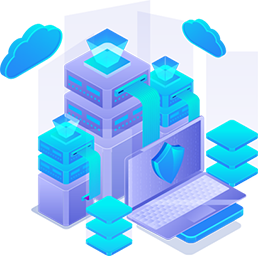
Function as a Service (FaaS)
Function as a Service carries out a similar method of lending the service of required functionalities in creating an application on a timely basis.

Platofrm as a Service (PaaS)
Platform as a Service is a cloud computing solution provided by specific vendors who are capable of possessing and delivering the required platform to their clients who are involved in the process of app creation.

Back-end as a Service (BaaS)
BaaS plays the primary role of middleware in connecting the web/mobile applications to their required cloud services using Application Program Interface (APIs) and Software Development Kit (SDK).
(FaaS)
Function as a Service
Ease up the pressure on Storage, Network infrastructure or any other Physical hardware management.
Integrating a function is no more a complicated process and it can be simply be carried out by giving an HTTP request
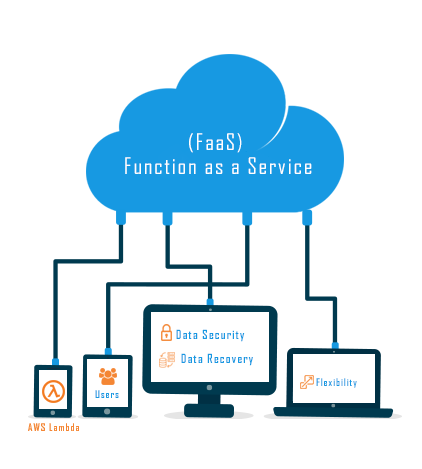
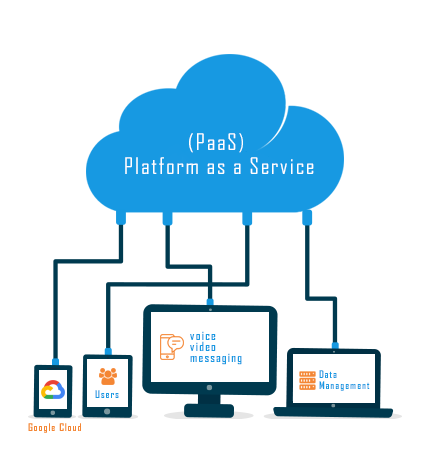
(PaaS)
Platform as a Service
(BaaS)
Back-end as a Service
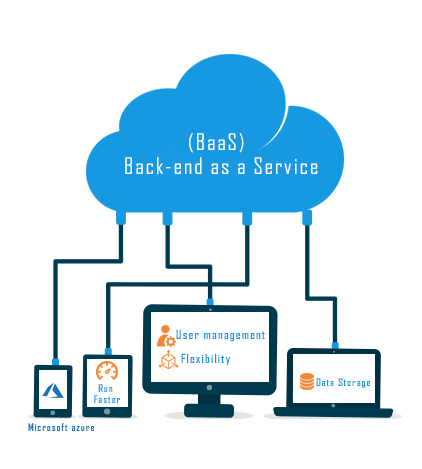
Serverless Computing
Service Providers

AWS Lamba
Being a complete administrative solution for application development, Lambda was provided by highly reputed Amazon runs code snippets in response to events.

Google Cloud Function
Google Cloud Functions provides serverless computing support to business organizations using their open infrastructure, and it ensures to provide a better facilitating and beneficial platform for developers to create a productive application.
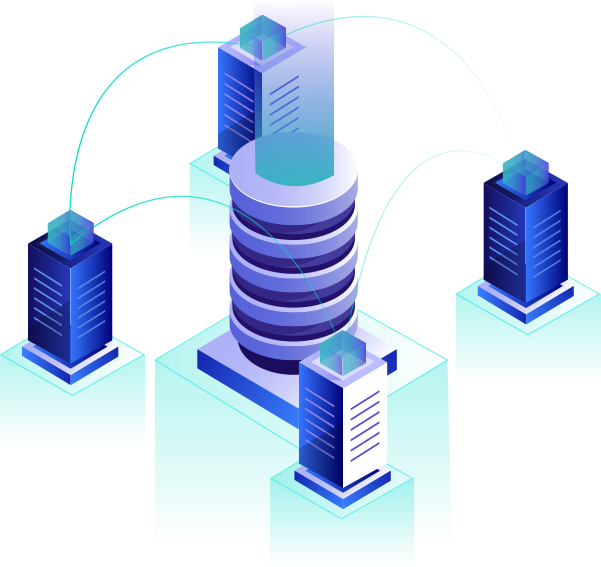

IBM Cloud Functions
IBM cloud functions provide exclusive FaaS based model by delivering on-demand functionalities that help to develop and run applications according to requirement and on time.

Microsoft Azure
Similar to other serverless computing services, Microsoft also delivers required benefits to enterprise users in creating any high complicated applications without the requirement of the server to be built in their side.
AWS Lamba
Languages Supported
Node.js, Java, C#, Python.
Why choose AWS Lambda?
- Faster Development
- Easier Operational Management
- Cost benefits in FaaS deployment
Google Cloud Function
Google Cloud Functions provides serverless computing support to business organizations using their open infrastructure, and it ensures to provide a better facilitating and beneficial platform for developers to create a productive application.
Google Cloud Function supports JavaScript framework and it runs using Node.js
Why choose Google Cloud Functions?
- Helps to create microservices
- Provides uninterrupted BaaS solutions
- Helps to create a high impulsive environment
IBM Cloud Functions
Languages Used
Node.js , Python , Swift, Java, PHP.
Why Choose IBM Cloud Functions?
- Helps to adapt to cloud environment by adding extra two set of codes
- Makes parallel running of Python code much simpler
- Flexible to opt between runtime and programming languages
- Deployment of more innovative tools
- Achieve better efficiency at reduced cost
Microsoft Azure
Languages Used
C#, JavaScript, Python, Java.
Why choose Microsoft Azure?
- Provides IaaS (Infrastructure as a Service) and PaaS (Platform as a Service) solutions at its best way
- Delivers high-end security offerings
- Easily expandable and measurable
- Delivers best hybrid capabilities
- Assists in business analytics and intelligence


